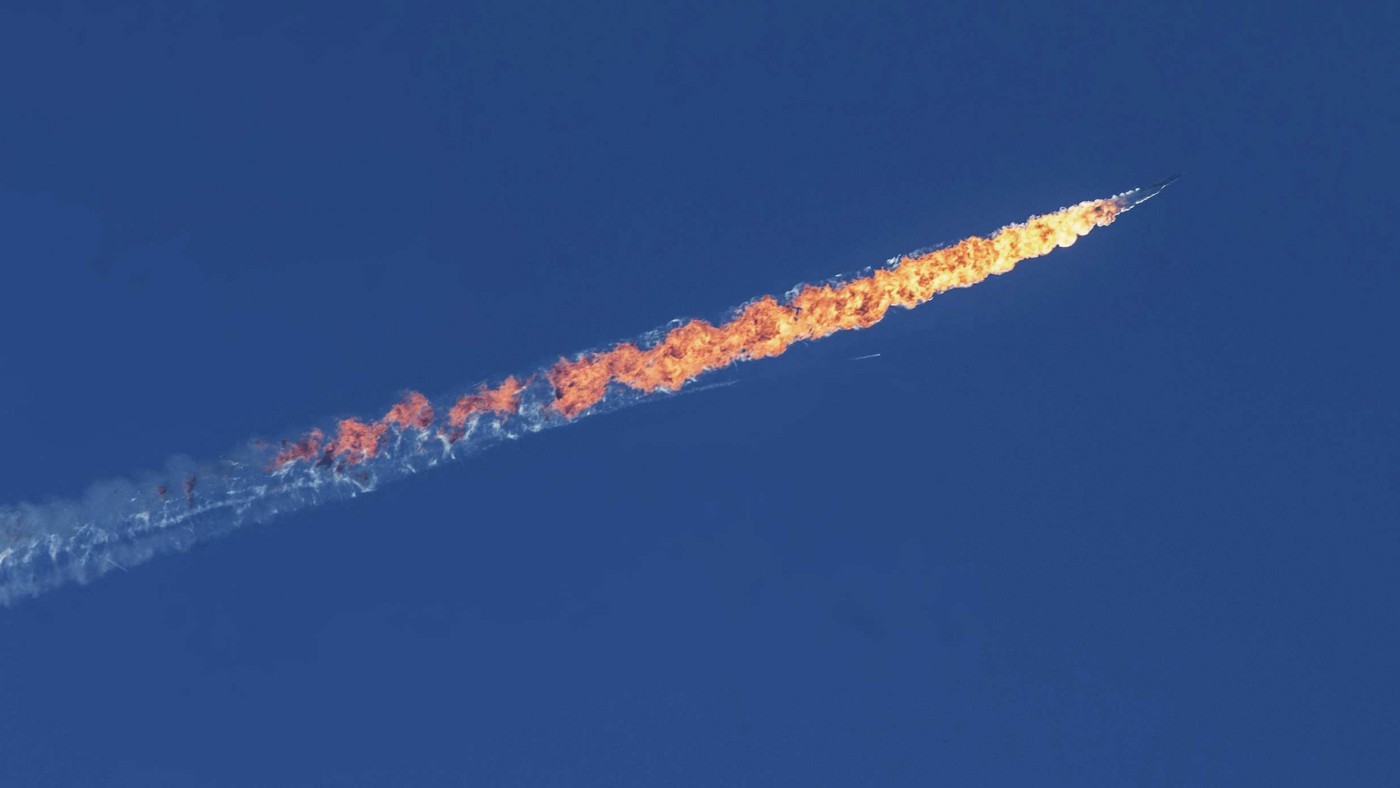The shooting down of the Russian fighter jet on the Turkish-Syrian border earlier this week may have brought the world dangerously close to an international war. If the idea seems hysterical, it is because we have grown far too accustomed to peace.
Scholars such as Harvard’s Steven Pinker have meticulously documented the long-term fall in violence and armed conflict around the world – the Long Peace. One of its manifestations is that terrorist attacks, or wars in Syria and Iraq, Ukraine, or Mali strike us as anomalies, not as manifestations of the usual course of human events. The notion of a full-blown war between advanced industrialized countries, furthermore, seems completely out of the question.
But the period of relative peace that we are enjoying should not be taken for granted. It is not some inevitable, God-ordained end of history. Instead, it is a potentially fragile outcome of very specific institutional arrangements, guaranteed ultimately by the military might of the United States.
There are signals that some of those arrangements are fraying at their edges. The European Union, which has successfully bound European nations together, is stumbling from one crisis to another. Western politics appears more divisive and radicalized than ever before, with figures such as Donald Trump and Jeremy Corbyn playing influential roles within mainstream political parties, and a spectrum of extremists rising on the far-left and the far-right.
Most importantly, the resolve of Western liberal democracies to deal with threats to world peace is being questioned. After the wars in Iraq and Afghanistan, Americans were not unjustified in their concerns over the costs of US ‘foreign entanglements’. The mantra du jour, shared by many regardless of their ideology or party affiliation, is that the United States – and the West more generally – should not try to be the world’s policeman. An alternative formulation, used by words of President Obama’s aides, that they “should not do stupid shit.” On the conservative right, the GOP candidate Rand Paul is the most vocal proponent of this view, which has attracted a significant following particularly in the libertarian circles.
Just how wise is the approach adopted by Paul and his ilk? One uncomfortable truth about the world is that it needs a policeman. That does not mean that the United States, or other Western countries, ought to have a stake in every skirmish in the world. However, the extent to which we enjoy a largely peaceful international order today is a direct result of the fact that the burden of policing the world has been taken on, in the past 60 years, by a handful of liberal democracies, most prominently, by the United States.
The world will not become a safer place if the West vacates this space to the Putins and Erdogans of the world, as it has done in the past decade or so. The lack of a stronger pushback against Russia’s aggression in Ukraine has encouraged the Kremlin to intimidate the Nordic countries and the Baltic states, and ultimate to launch his Syrian adventure. Leaving the conflict in Syria to brew, with Iranian and Russian assistance, has given us the Paris attacks and a promise of more trouble to come.
Doing ‘stupid stuff’, including sometimes rushing into dumb wars, is a necessary, though very much regrettable, part of playing an active role in global affairs. Of course, the United States, and the West, should try to minimize the extent of policy mistakes – and, even more so, of policy tragedies. It is also fair of the United States to ask its allies in Europe and elsewhere to bear their share of the burden of policing the world. But we should be careful not to throw the baby out with the bathwater. Disengaging from the world and letting despots and local bullies carry on with their business is a choice too and carries its own risks.
Incidents such as the one that happened on the Turkish-Syrian border give one a taste of a world in which the world’s liberal democracies retire from their role as the global policemen. This Thanksgiving, we should be thankful that they have not quite resigned from that job yet.


